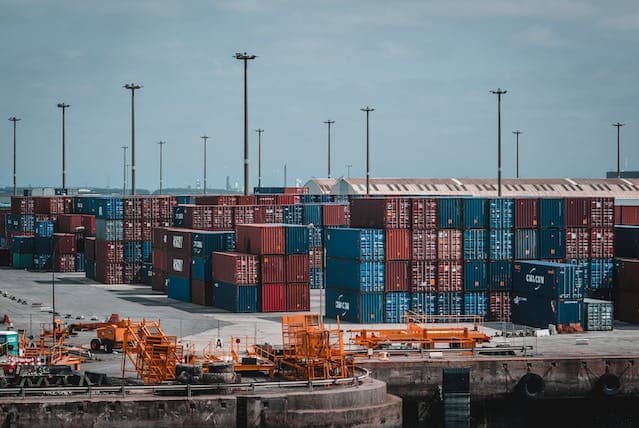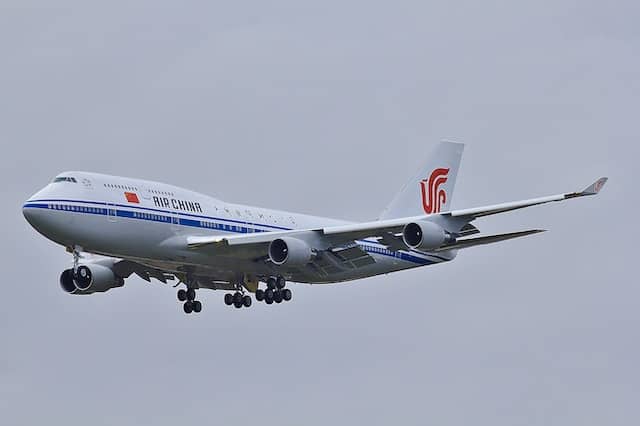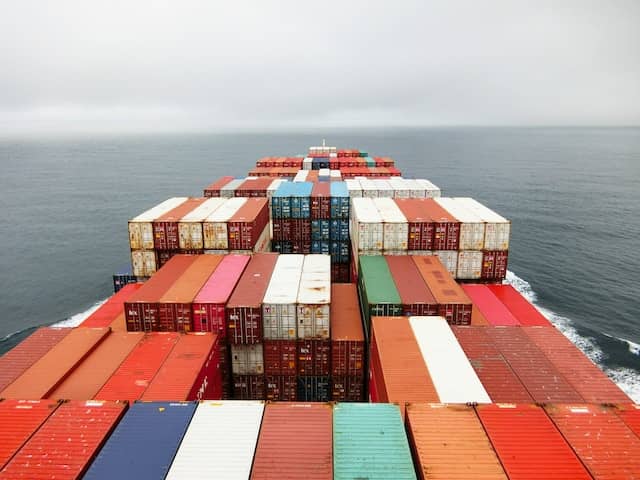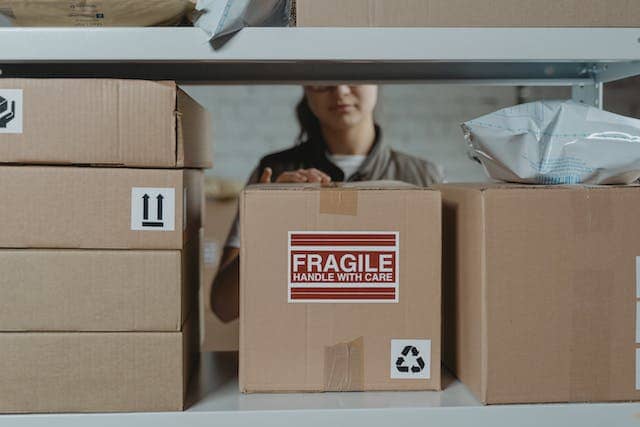Shipping from China to Germany is an essential process for business owners looking to tap into the robust trade relationship between these two economic powerhouses.
With a spectrum of shipping methods at your disposal, you have the flexibility to optimize your logistics to meet your business’s specific needs.
Whether you’re new to international trade or looking to fine-tune your shipping strategy, understanding the nuts and bolts of the process is critical for ensuring that your goods move efficiently between these two nations.
Navigating the complexities of international shipping can feel daunting, but with the right information, it becomes a manageable and streamlined part of your business.
From selecting the most effective shipping method to understanding customs regulations, this guide aims to arm you with the knowledge you need to make informed decisions.
So, consider this your map through the world of shipping from China to Germany, designed to help you ship smarter and scale your business globally.
Key Takeaways
- A range of shipping methods offers flexibility for businesses.
- Knowledge of shipping logistics is key to successful international trade.
- Customs regulations and shipping choices significantly impact efficiency.
Overview of Shipping Methods and Options
When expanding your business reach from China to Germany, selecting the right logistics solution is crucial. Understanding the intricacies of sea, air, and rail freight will help you optimize cost and efficiency for your international shipping needs.
Sea Freight
Full Container Load (FCL) is ideal for large shipments where you can fill an entire container.
FCL not only secures your cargo in a dedicated space but also expedites the handling process during transportation, as there’s no need to consolidate your goods with others.
It suits businesses that are shipping quantities sufficient to fill at least half a 20 or 40-foot container.
Less than Container Load (LCL), on the other hand, allows you to share container space with other shippers.
This option is often more cost-effective for smaller shipments and offers a practical solution if you’re not shipping enough to warrant a full container.
LCL is a smart choice for keeping shipping costs down when you do not have a tight delivery schedule.
Pros:
- FCL: Better for larger shipments, offers privacy and faster handling.
- LCL: More economical, ideal for smaller shipments.
Cons:
- FCL: May not be cost-effective for smaller volumes.
- LCL: Longer transit times due to the consolidation/deconsolidation process.
Top-Rated China Freight Forwarder
Expert Shipping Solutions for Your Needs
Air Freight
Air freight is the quickest mode of transporting goods internationally and is particularly effective for time-critical shipments.
Whether you’re moving high-value products or items that require rapid delivery, air cargo offers a reliable and swift way to get your goods from China to Germany, typically within 3 to 7 days.
Pros:
- Speed: It’s the fastest shipping method available.
- Reliable: Fixed schedules from major airports allow for better planning.
Cons:
- Cost: Generally more expensive than other shipping modes.
- Size limitations: Not suitable for exceptionally heavy or voluminous cargo.

Rail and Express Freight
Rail freight is an increasingly popular choice for its balance between cost and transit time.
With services between major Chinese cities like Xi’an and German hubs, rail freight is a sustainable option that provides a middle ground between the speed of air freight and the cost-effectiveness of sea shipping.
Express freight services offer door-to-door delivery for urgent shipments that demand prompt attention without the high cost of air freight.
These services provide a practical solution for delivering time-sensitive goods that are also heavier and larger than typical air freight allows.
Pros:
- Balance: Rail and express provide speed at a more affordable rate than air freight.
- Tracking: Real-time updates are often available, improving cargo management.
Cons:
- Slower than air freight, yet faster than sea freight.
- Rail freight may have limitations based on rail network access.
Each method offers its unique advantages and potential drawbacks. Aligning your business requirements with these shipping options will ensure a streamlined and effective cargo management system for your China-Germany logistics channel.
Shipping from China to Germany: Major Ports and Trade Routes
Shipping your products from China to Germany requires a firm understanding of the main ports and available trade routes. Let’s take a look at the major hubs and paths your goods can take on their journey to Germany.
Major Ocean Cargo Ports in China
When you’re exporting goods from China, several ports stand out due to their capacity and facilities:
- Shanghai: The world’s busiest container port that connects with international shipping lines.
- Shenzhen: Known for its modern infrastructure, it’s particularly popular for electronics shipping.
- Ningbo: A top choice for traders due to its efficient services and connectivity.

Major Air Cargo Ports in China
- Beijing: Beijing’s primary air cargo port, primarily at Beijing Capital International Airport, is a crucial hub for domestic and international freight linking China’s capital to global markets.
- Chengdu: Chengdu Shuangliu International Airport is a key western China air cargo hub, pivotal for electronic goods and connecting trade routes to Europe and the Middle East.
- Guangzhou: Guangzhou Baiyun International Airport, a major southern China air cargo hub, is central for shipping electronics, garments, and perishables from the Pearl River Delta.
- Hong Kong: Hong Kong International Airport is a leading global air cargo hub known for its efficiency and extensive network, handling diverse goods including electronics and machinery.
- Shenzhen: Shenzhen Bao’an International Airport, rapidly growing, capitalizes on the region’s tech manufacturing, focusing on high-tech products and components.
- Shanghai: Shanghai Pudong International Airport, one of China’s largest, handles diverse cargo like electronics and automotive parts, reflecting Shanghai’s economic breadth.
- Hangzhou: Hangzhou Xiaoshan International Airport is an important air cargo hub in Eastern China, supporting exports like textiles and e-commerce shipments.
- Xian: Xian Xianyang International Airport is gaining prominence for cargo along the Silk Road Economic Belt, especially for electronic goods and agricultural products.
- Xiamen: Xiamen Gaoqi International Airport in Southeastern China facilitates the export of diverse goods including electronics and machinery from Fujian province.
- Qingdao: Qingdao Jiaodong International Airport serves Shandong region, crucial for exporting seafood and electronics, and strategically positioned for trade with Japan and Korea.
- Wuhan: Wuhan Tianhe International Airport is a central air cargo hub in China, significant for the automotive and high-tech industries, and domestic cargo distribution.
- Tianjin: Tianjin Binhai International Airport, an important Northern China cargo hub, supports the transportation of machinery and electronics, serving the Bohai Economic Rim.

Major Rail Hubs in China
- Chongqing: Chongqing, a major rail hub in Southwest China, plays a crucial role in connecting the region to both domestic and international rail networks, particularly significant for freight transport due to its strategic location.
- Hefei: Hefei serves as a key rail hub in Eastern China, facilitating efficient rail connectivity for both passenger and freight services, and plays an instrumental role in linking the Anhui province to other major Chinese cities.
- Xi’an: Xi’an, an important historical city, acts as a major rail junction in Northwest China, serving as a central point in the country’s rail network and playing a pivotal role in the Silk Road Economic Belt initiative.
Major Ocean Cargo Ports in Germany
Upon arrival in Germany, your goods will likely pass through these key ports:
- Hamburg: Germany’s largest port, often referred to as the country’s “Gateway to the World.”
- Bremerhaven: Focuses on container shipping and is crucial for automotive trade.
- Bremen: Important for handling both container and bulk cargo.
Major Air Cargo Ports in Germany
- Frankfurt: Frankfurt Airport is Europe’s busiest air cargo hub, serving as a key global logistics center for a wide range of goods, particularly pharmaceuticals and automotive parts.
- Dusseldorf: Dusseldorf Airport is a significant cargo hub in Western Germany, primarily facilitating the transport of electronics, machinery, and fashion goods.
- Berlin Tegel: Before its closure, Berlin Tegel Airport played a crucial role in Berlin’s air cargo operations, mainly handling consumer goods and electronic items.
- Hamburg: Hamburg Airport is a major northern Germany cargo hub, known for handling a diverse range of goods including high-tech products and perishables.
- Munich: Munich Airport, a key southern Germany cargo hub, specializes in handling high-value goods like electronics, pharmaceuticals, and automotive components.
- Cologne/Bonn: Cologne/Bonn Airport is a major air cargo hub in Germany, renowned for its extensive operations in express freight and e-commerce parcels.
- Berlin Schönefeld: Berlin Schönefeld Airport, now part of BER, serves as a growing cargo hub, handling a variety of goods, including consumer electronics and e-commerce products.
- Stuttgart: Stuttgart Airport, while smaller in cargo volume, plays a vital role in the region’s economy, particularly in shipping automotive parts and machinery.

Major Rail Hubs in Germany
- Duisburg: Duisburg is one of Europe’s largest inland ports and a major rail hub in Germany, playing a key role in the country’s freight transport, particularly for goods arriving via the Silk Road from China.
- Hamburg: Hamburg serves as a major rail hub in Northern Germany, facilitating extensive freight and passenger rail traffic, and is integral to connecting major sea port operations with inland destinations.
- Munich: Munich is a crucial rail hub in Southern Germany, supporting both domestic and international rail traffic, and is pivotal for connecting the Bavarian region to the rest of Germany and neighboring countries.
Remember to plan your shipments to avoid peak seasons between mid-August to mid-October, and other holidays like Chinese New Year and Golden Week, when rates are highest due to demand.
As an eCommerce player, you know that timing is everything. So plan ahead and book your shipments early to secure the best rates and avoid delays.
Shipping Costs
Understanding the costs associated with shipping from China to Germany is crucial for any business owner looking to import goods effectively.
These costs can vary greatly depending on a number of factors, including the size and weight of your cargo, the mode of transportation, and the specific services you require.
Below, we’ll break down these expenses and provide realistic pricing estimates to help you budget accordingly.
Factors Influencing Costs
When shipping from China to Germany, several key factors impact the total cost:
- Location: Distance between pickup and delivery points, with further distances increasing costs.
- Size and Weight: Larger and heavier shipments generally incur higher fees.
- Shipping Mode: Options include air freight for speed, ocean freight for volume, and rail as a balance of both.
- Tariffs and Taxes: Import duties and value-added taxes that vary by product category.
- Freight Charges: Costs for the transportation of goods, influenced by the chosen shipping mode.
- Insurance: Protecting your cargo against loss or damage during transit, calculated as a percentage of the cargo’s value.
- Cargo Safety: Costs for ensuring your goods are properly packaged and secured.

Pricing Estimates
Below is a set of tables summarizing the estimated shipping rates from popular ports in China to key destinations in Germany.
FCL Container Freight Rates
| From | To | 20-ft Container (USD) | 40-ft Container (USD) |
| Ningbo | Hamburg | 750 | 1350 |
| Shenzhen | Hamburg | 680 | 1200 |
| Shanghai | Hamburg | 600 | 1050 |
LCL Container Freight Rates
| From | To | Price per CBM (USD) |
| Ningbo | Hamburg | 20 |
| Ningbo | Bremen | 25 |
| Shenzhen | Hamburg | 80 |
| Shenzhen | Bremen | 70 |
| Shanghai | Hamburg | 20 |
| Shanghai | Bremen | 25 |
Air Freight Rates
| From | To | Price per kg (USD) |
| Shanghai | Frankfurt | 2.9-3.0 |
| Shanghai | Hannover | 3.1-3.3 |
| Shanghai | Hamburg | 3.1-3.3 |
| Shenzhen | Hamburg | 4.5-5.0 |
| Shenzhen | Leipzig | 3.0-3.5 |
| Shenzhen | Frankfurt | 2.8-3.1 |
Rail Freight Rates
| From | To | Price per CBM (USD) |
| Zhengzhou | Hamburg | 185-195 |
| Zhengzhou | Munich | 185-195 |
| Zhengzhou | Duisburg | 210-220 |
Managing Shipping Costs
To effectively manage your shipping costs, start by requesting quotes from multiple logistics providers.
Leverage the competition to negotiate better rates, particularly if you’re shipping large volumes regularly.
Consider the time of year – seasonal demand can impact pricing, so plan your shipments during off-peak times if possible.
Finally, always factor in a buffer for unforeseen expenses, such as delays or additional customs inspections.
Remember, choosing a reliable logistics partner can also mean fewer unexpected fees and a smoother shipping experience overall.
Transit Times and Tracking
When planning to ship from China to Germany, understanding the average transit times and having the ability to track your cargo are two crucial aspects that greatly impact your supply chain efficiency.
Average Transit Times
Depending on your transportation mode, shipping times will vary.
Sea freight typically takes about 20 to 30 days from port to port, while air freight is much faster, averaging around 3 to 7 days to reach your German destination.
An emerging option, rail freight, offers an expedient transit of approximately 10-12 days.
Here’s a quick overview to help you compare:
| Shipping Method | Transit Time |
| Sea Freight | 20-30 days |
| Air Freight | 3-7 days |
| Rail Freight | 10-12 days |
Tracking and Management
Accurate tracking and efficient logistics management are paramount in today’s fast-paced market.
For your peace of mind and optimal control over the shipment process, modern tracking systems offer real-time insights into your cargo’s journey.
Utilizing GPS technology, you can monitor your shipment’s progress across continents right to its destination in Germany.
Implementing advanced logistics services such as this ensures you stay informed and can provide exceptional service to your customers.
Customs Clearance and Regulations When Shipping from China to Germany
When shipping from China to Germany, it’s essential to understand the complexities of customs clearance and adhere to the regulatory requirements.
Proper documentation and compliance with import/export regulations will ensure a smooth process and prevent unnecessary delays. Using a reputable freight forwarder can also streamline door-to-door delivery.
During customs clearance, you’ll need to provide a set of required documents for your goods to enter Germany.
This paperwork typically includes a commercial invoice, packing list, and bill of lading or air waybill.
Adhering to customs compliance means ensuring all documents accurately reflect your shipment’s content, value, and origins.
To streamline the customs process:
- Prepare your commercial invoice meticulously, detailing the products, their value, and country of origin.
- A packing list should accompany the invoice, specifying how your goods are packed.
- Ensure your bill of lading or air waybill is correctly issued.
- Some products may need additional certifications or licenses; check with German customs authorities ahead of time.
Import Taxes and Duties
The cost of shipping from China to Germany isn’t limited to transportation fees. Import taxes and duties can significantly impact your total costs.
Germany, as a member of the European Union, imposes duties on goods from non-EU countries. The rate varies depending on the product type and its value.
For effective financial planning:
- Calculate VAT and duties as part of your cost analysis to determine the actual price of your imported goods.
- Consider the impact of seasonality and peak shipping periods on pricing, which can fluctuate due to demand.
- Work with a freight forwarder who offers visibility on these costs to prevent surprises and aid in your budgeting process.
Understanding and preparing for customs clearance and import taxes is crucial for business owners importing from China to Germany. Keeping these points in mind can ensure that your shipping process is as cost-effective and hassle-free as possible.
How to Choose a Reliable Freight Forwarder

When you’re embarking on shipping from China to Germany, picking a reliable freight forwarder is as crucial as choosing the right supplier. Here’s how you can ensure your supply chain runs smoothly:
1. Assess Their Experience.
You want a freight forwarder that’s seasoned in China-Germany logistics planning. Familiarity with both markets means they’re adept at navigating regulations and handling unforeseen challenges.
2. Evaluate Their Network.
Ensure your forwarder has a robust network of agents and carriers. A strong network signals their capability in supply chain management, crucial for on-time and cost-efficient shipping.
3. Scrutinize Shipping Contracts.
Your forwarder should offer clear shipping contracts with defined terms, helping you understand your rights, responsibilities, and the extent of their service coverage.
4. Note Transparency and Communication.
Opt for forwarders who are transparent with their process and communicative. Your business relies on timely updates and the ability to reach them when you need to.
5. Look for Additional Services.
Sometimes, you’ll need more than just shipping. A good forwarder can also provide value-added services like warehousing, distribution, or freight forwarding solutions tailored to your needs.
Top-Rated China Freight Forwarder
Expert Shipping Solutions for Your Needs
Best Practices for Efficient Shipping from China to Germany
Ensuring that your goods arrive safely and timely from China to Germany requires attention to packaging and risk management.
Following these best practices will help to enhance shipping efficiency and ensure cargo safety, while effective logistics planning and risk management can protect your business from unexpected challenges.
Packaging and Handling
- Choose Appropriate Packaging: Select materials that provide ample protection. For fragile items, use cushioning and sturdy boxes.
- Label Clearly: Ensure each package is clearly labeled with handling instructions and destination details to prevent mishandling.
- Secure Packages: Use straps and seals for added security, reducing the risk of theft or loss.
- Understanding Goods Nature: Different goods require different handling. Keep abreast of safety considerations specific to your product types to minimize transit risks.

Risk Management
- Comprehensive Insurance: Protect your shipment from loss or damage with a good insurance policy.
- Track Shipments: Use GPS or RFID technology for real-time tracking to stay informed about your cargo’s location.
- Prepare for Delays: Have a contingency plan for customs hold-ups or transit delays to avoid disruptions in your supply chain.
- Regular Audits: Conduct audits of your shipping processes to identify and address any inefficiencies or recurring risks.
FAQs about Shipping from China to Germany
Navigating the complexities of shipping from China to Germany involves understanding the best practices and key logistical points. Here, we answer some common questions that can help streamline your shipping process.
What Are the Busiest Shipping Ports in China?
China has several major ports that handle a vast amount of international freight. The Port of Shanghai is the world’s busiest container port, followed closely by the Port of Shenzhen. Efficiently using these ports can save you time and money.
What Are the Busiest Shipping Ports in Germany?
Germany’s key maritime gateways include the Port of Hamburg, which is the busiest in terms of container throughput, and the Port of Bremen/Bremerhaven. These ports serve as major hubs for goods entering Europe from China.
What Are the Best Freight Options to Send Goods from China to Germany?
You have multiple options, such as sea freight for larger shipments, which is more cost-effective, and air freight for urgent deliveries. Rail freight is a balanced option in terms of speed and expense.
What Is Germany’s Import Duty from China?
The import duty varies depending on the type of goods you’re importing. Typically, it ranges from 0% to 20%, but you can use the EU’s TARIC database to get exact rates for your products.
What Is Not Allowed to Be Shipped to Germany?
Certain items are prohibited or restricted by German customs, such as counterfeit goods, certain meats, and plants. Always check the latest regulations before shipping to avoid any legal issues or delays.
Ship Smarter from China to Germany with Niche
When you’re looking at shipping options from China to Germany, several factors are on your checklist: cost-effectiveness, reliability, and the timeline of transit. To ensure your business thrives, choosing the right logistics partner is essential.
- Choose Full Container Load (FCL) if you have enough goods to fill a container. This could streamline your shipping process, making it faster and more efficient.
- Opting for Less than Container Load (LCL) can be more cost-effective if you don’t need the space of an entire container.
- Consider multimodal shipping solutions that combine sea, rail, or air freight customized to your needs.
Pivot your strategy by implementing time-saving techniques and understanding customs regulations, which is crucial for smooth operations.
Remember, efficient shipping is not just about speed but also about the smart allocation of resources and understanding the intricate details of cross-border logistics.
If you’re looking to source products from China and want a seamless shipping experience to Germany, let us help you navigate the waters.
Mapping out your logistics with Niche will introduce a systematic approach to your shipments and reduce the complexity associated with international freight.
Request a sourcing quote, and we’ll ensure your goods reach their destination safely and efficiently.
For a comprehensive logistics solution, consider our freight forwarding services. We offer end-to-end support, handling everything from pickup at the supplier to final delivery in Germany. To get started with a customized shipping plan that includes freight forwarding, request a freight forwarding quote today.

